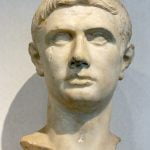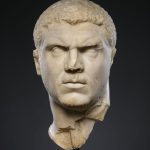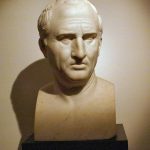Many of the nicknames of Roman emperors in use today were not used in official documents. Caracalla even got his nickname because of his fondness for a long Gallic cloak with a hood (the prototype of the monastic habit), which in Rome was called caracalla.
Officially, however, he was named Lucius Septimius Bassianus, and later received Marcus Aurelius Antoninus Bassianus to be associated with the imperial house of Antonine. Caligula, in turn, nicknamed “shoe” (caligae – when he was little he wore Roman sandals and from that moment he became the mascot of the army) wore names Gaius Iulius Caesar.
Nicknames vividly resemble our unofficial nicknames, because they commonly refer to character flaws (Celsus – jerk, Tacitus – silent, Brutus – stupid), and this to defects of beauty (Cicero – pea, from a wart of this shape, Naso – nose), and this is the origin (Afer – African), and this is the father’s profession (Pollio – fuller), and this is family complications – born feet first) and so on. So rulers “not very” had to react favourably to their nicknames, because they hurt their honour.






